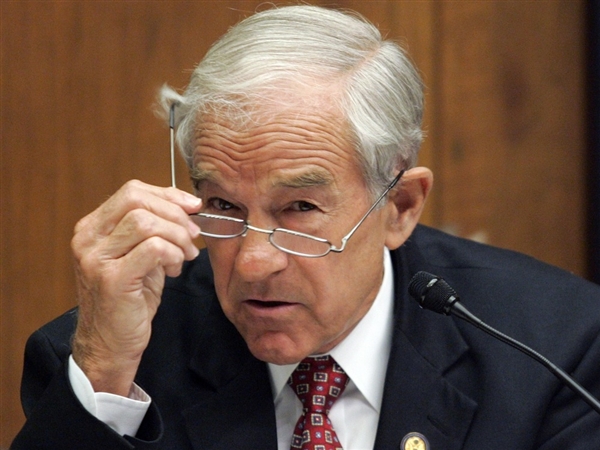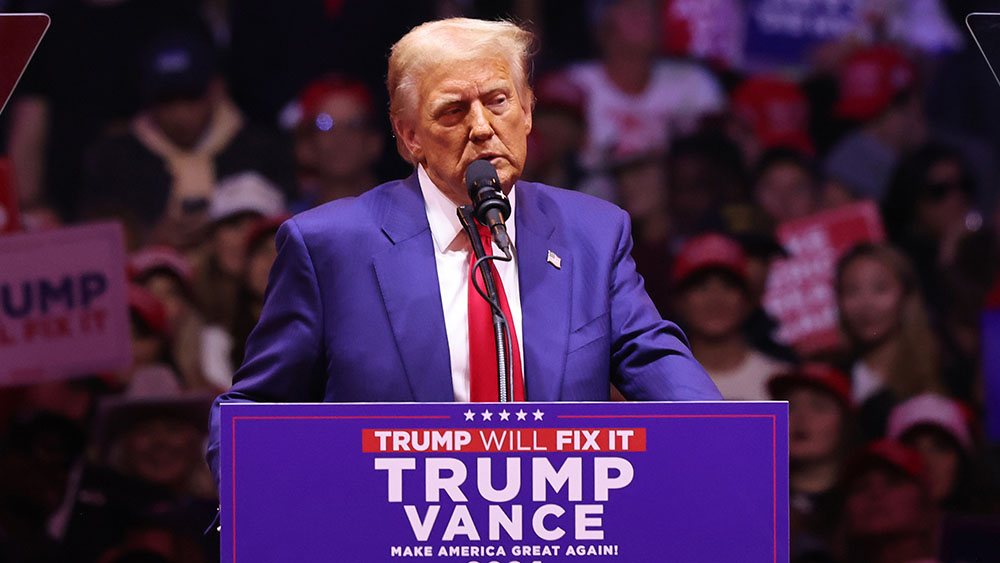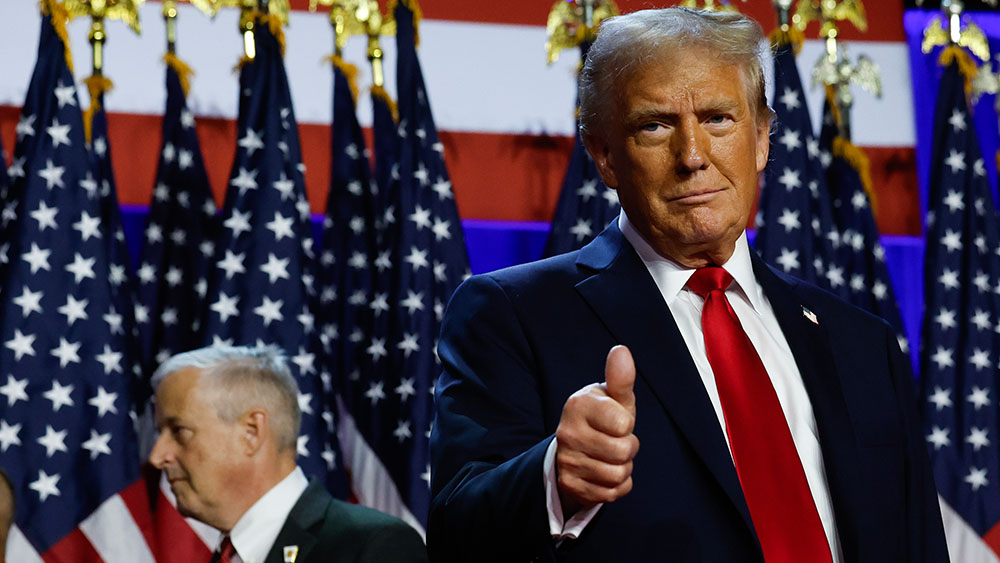 Parler
Parler Gab
Gab
- Kash Patel, Trump's nominee for FBI director, opposes requiring warrants for searches under Section 702 of FISA, sparking controversy over government surveillance and civil liberties.
- Patel argues that a warrant requirement would hinder national security operations, but his stance is at odds with a growing chorus of lawmakers, civil liberties advocates and federal judges who argue that warrantless searches violate the Fourth Amendment.
- Judge LaShann DeArcy Hall's landmark ruling in United States v. Hasbajrami challenges years of unchecked data collection and underscores the systemic overreach that has allowed millions of warrantless FBI searches.
- Patel's nomination comes at a pivotal moment as Section 702 is set to expire next year, with Congress expected to engage in a fierce battle over its renewal and potential reforms.
- The debate over Section 702 highlights the tension between national security and constitutional rights, with Patel's stance on the issue setting the stage for a protracted legal and political fight.
The FISA Section 702 controversy
Section 702 of FISA allows the U.S. government to collect vast amounts of data from social media platforms, email services and other sources without obtaining a case-by-case warrant. While the program is ostensibly aimed at foreign targets, the FBI has repeatedly conducted warrantless searches on Americans’ communications, sparking bipartisan outrage. Patel defended the current system, stating, “Having a warrant requirement to go through that information in real-time is just not comported with the requirement to protect American citizens. It’s almost impossible to make that function and serve the national, no-fail mission.” Patel’s stance places him at odds with a growing chorus of lawmakers, civil liberties advocates and even federal judges who argue that warrantless searches violate the Fourth Amendment. In a landmark ruling earlier this month, U.S. District Judge LaShann DeArcy Hall declared that such “back door” searches constitute a search under the Fourth Amendment and require a warrant. This decision, in United States v. Hasbajrami, challenges years of unchecked data collection and underscores the systemic overreach that has allowed millions of warrantless FBI searches.Patel’s balancing act: Security vs. privacy
Patel’s opposition to a warrant requirement is particularly striking given his vocal criticism of past FBI abuses. Unlike his predecessors, Patel has consistently emphasized the need to prevent intelligence agencies from overstepping constitutional boundaries. Yet, his resistance to judicial oversight raises concerns about how he plans to reconcile his commitment to civil liberties with his rejection of a key safeguard. When questioned by Sen. John Cornyn (R-Texas), Patel acknowledged the misuse of Section 702 authority but argued that additional oversight would impede critical operations. “The issue has been those that have been in government service and abused it in the past. And so we must work with Congress to provide the protections necessary for American citizens,” he said. Patel also highlighted his personal experience using Section 702 data to rescue American hostages overseas, suggesting that the program’s benefits outweigh its risks. However, critics argue that Patel’s position ignores the fundamental role of warrants as an independent check on government power. Without judicial oversight, there is no external mechanism to ensure that surveillance activities remain focused on foreign targets and do not infringe upon the privacy rights of Americans. As Judge Hall’s ruling demonstrates, the absence of such safeguards has led to widespread abuse, with the FBI conducting over 3 million warrantless searches on Americans’ communications in recent years.A legacy of overreach
The debate over Section 702 is not new. Since its inception in 2008, the provision has been a lightning rod for controversy, with critics warning that it creates a “back door” for warrantless surveillance of Americans. The program’s defenders, including Patel, argue that it is essential for national security, pointing to its role in thwarting terrorist plots and rescuing hostages. Yet, history has shown that unchecked surveillance powers often lead to abuse. The revelations of Edward Snowden in 2013 exposed the extent of the National Security Agency’s (NSA) mass surveillance programs, sparking a global outcry and calls for reform. More recently, the FBI’s misuse of FISA warrants to spy on Trump campaign aide Carter Page during the 2016 election further eroded public trust in the intelligence community. Patel’s nomination comes at a pivotal moment, with Section 702 set to expire next year. Congress is expected to engage in a fierce battle over its renewal, with lawmakers on both sides of the aisle pushing for reforms to address the program’s constitutional flaws. Patel’s opposition to a warrant requirement suggests that the Trump administration is preparing to defend the status quo, setting the stage for a protracted legal and political fight.The road ahead
As Patel’s confirmation process unfolds, his stance on Section 702 will undoubtedly remain a focal point of scrutiny. While his commitment to preventing intelligence overreach is commendable, his rejection of judicial oversight raises troubling questions about his ability to balance national security with constitutional rights. In an era of unprecedented technological advancements, the stakes could not be higher. The Fourth Amendment’s protection against unreasonable searches and seizures is a cornerstone of American liberty, and any erosion of these rights threatens the very foundation of our democracy. As Judge Hall’s ruling reminds us, the courts have a vital role to play in holding the government accountable and ensuring that surveillance programs operate within the bounds of the law. For now, Patel’s nomination serves as a litmus test for the future of FISA and the broader debate over privacy and security. As Congress prepares to reauthorize Section 702, the American people must demand transparency, accountability and a renewed commitment to the constitutional principles that define our nation. Sources include: ReclaimTheNet.net Cato.org Politico.comRon Paul: Audit USAID… then shut it down!
By News Editors // Share
Trump DOJ sues Chicago and Illinois over sanctuary laws, citing public safety risks
By Cassie B. // Share
Palestinians reject Trump’s Gaza ‘Riviera’ plan, vow to stay on their land
By Cassie B. // Share
Trump’s using a clever trick to break the Deep State’s massive ‘command and control’ system…
By News Editors // Share
Governments continue to obscure COVID-19 vaccine data amid rising concerns over excess deaths
By patricklewis // Share
Tech giant Microsoft backs EXTINCTION with its support of carbon capture programs
By ramontomeydw // Share
Germany to resume arms exports to Israel despite repeated ceasefire violations
By isabelle // Share










